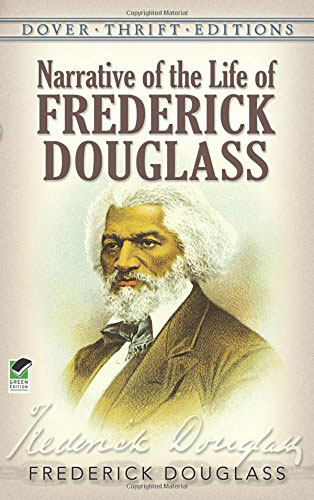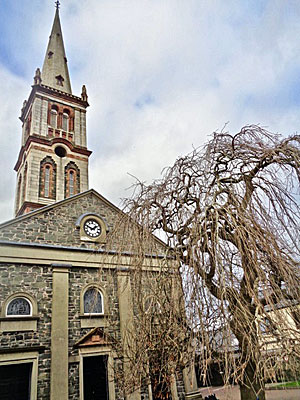Frederick Douglass was born into slavery around 1818 in Talbot County, Maryland. His mother was of native American ancestry and his father was of African and European descent. He was separated from his mother during infancy and lived with his maternal grandmother. At the age of 6 he was moved away from her to live and work on the Wye House plantation, Maryland. He was then given to Lucretia Auld. Her husband, Thomas sent him to work with his brother, Hugh in Baltimore. It was Thomas’s wife, Sophia, who taught Frederick the alphabet. He then taught himself to read and write. When word got out that he was teaching fellow enslaved people to read he was sent at the age of 16 to Edward Covey, a farmer known for his brutal treatment of slaves. He escaped to New York and after getting married to Anna Murray, a free black woman, he settled in New Bedford, Massachusetts.
He became a prominent activist, public speaker and a leader in the abolitionist movement. Frederick wrote his autobiography Narrative of the Life of Frederick Douglass, an American Slave which was published in 1845. The book became an immediate best seller. Douglass’s friends, fearing that the publicity would come to the attention of his former owner, encouraged Frederick to tour Britain and Ireland.

The Committee of the Belfast Anti-Slavery Society placed an advertisement in the Belfast Commercial Chronicle of Monday, 13th July 1846, announcing that Mr Frederick Douglass, the fugitive slave, had been invited to give a lecture on American Slavery, that evening at 7 o’clock, in the First Presbyterian Church, Bangor. The report of the event was recorded in the Northern Whig of 18th July 1846.
The large place of worship was crowded by a most influential crowd. William Sharman Crawford Esq., M.P. chaired the meeting. On the platform were the Reverends Woods, Nelson, McCullough, Seymour, McIntyre, Graham and Mulhern along with Messrs. Standfield, Bell and Emerson. The body of the house was filled by a large number of the neighbouring gentry and several Ministers of various congregations. They were there to hear the lecture about slavery and the duty of churches to join in refusing Christian fellowship to slaveholders.
Mr Sharman Crawford expressed his happiness at being called to preside over such a meeting, especially as he had listened in other meetings to his friend Douglass describing the evils of slavery - evils which were not only disgraceful to the United States of America but also disgraceful to man. The lecture of Mr Douglass was in his usual eloquent and lucid style. He described the evils of slavery that he had experienced in his own life.
He talked about the work of the abolitionists over the last ten years in America. They had tried through various societies, their newspapers and lecturers to bring to the notice of the people of the United States the enormities which disgraced their civil institutions and which were a plague on their churches. Following a question from someone attending the meeting the conduct of the Free Church was discussed. The Free Church had lately sent a deputation to America, received money from slaveholders and admitted them into fellowship.
Robert J. Bell, Esq., Ballywooley, reminded the ladies present that if a missionary attempted to preach the Gospel, he was in danger of being killed or at least tarred and feathered, among the so-called Christian people of the Southern States of America. He ended by reading out the names of 23 ladies of Bangor and surrounding areas and suggested that they form into an auxiliary Society to the Belfast Anti-Slavery Association of Ladies.
 First Bangor Presbyterian Church
First Bangor Presbyterian Church
Rev. I. Nelson seconded the resolution in a powerful eloquent speech. He thanked the Ministers of the Presbyterian Assembly, that at their last meeting in Belfast, the Rev. Thomas Smith, D.D., of Charleston, was not asked, as was customary, to sit as a member of their Court and join in their deliberations. This fact showed, as he had hoped, the firmness and faithfulness of the Presbyterian body in this country. The American Churches would see, by the letter sent in reply to theirs, that they, as Irish Presbyterians, were neither to be cajoled nor deceived by their laboured and studied, but flimsy, apologies for slavery. But especially they would learn, by the exclusion of Dr. Smith, that even when a native of Belfast became untrue to the great cause of freedom, that they as Churches, were determined, by refusing him admission to their Assembly, to settle practically, and for ever, their fixed resolve to have no fellowship with slaveholders.
James Standfield, Esq., then read out the names of the Ministers who had attached their signatures to the resolutions, protesting against fellowship with slaveholders, which had been passed, at the meeting in Dr. Hanna’s Church, Belfast. He went on to say that even though he was an Episcopalian, he had taken a deep interest in the struggles of the Free Church and had contributed according to his means to assist them. But, he declared, there was a deputation from that Church at present in Belfast, seeking assistance and subscription for a monument to the great Reformer John Knox, his answer, and the answer he would recommend to others would be - ‘send back the slave holders’ money which you know to be stolen, and then we will give you subscriptions, but not until then.’
This wasn’t the only anti slavery meeting to be held in First Bangor Presbyterian Church. Five years later, on 13th August 1851, William Sharman Crawford Esq., M.P. again chaired a meeting in the church. The following gentlemen were present, the Rev. Woods, Minister of First Bangor Presbyterian Church, Rev. Binney, Rector of Bangor Parish and Rev. Pattison, Minister of 2nd Bangor Presbyterian Church, Rev. J. McCullough and Rev. J.G. McVickers of Newtownards, Rev. O’Hanlon, Belfast, Rev. Fleming, Armagh, Lieutenant Colonel Fulton, K.H., Henry Crawford Esq., Crawfordsburn, Robert Bell Esq., Ballywooley, James Standfield Esq., Dr Scott etc..
The house was filled with an audience of over 1,000 people. This meeting originated from a suggestion of the Rev. William Pattison, Minister of 2nd Bangor Presbyterian Church, Ash Lane (later Brunswick Road). The speaker was Rev. Henry Highland Garnet, an African-American abolitionist, minister and orator. He was also an escaped slave. He had escaped with his family as a child from slavery in Maryland and had grown up in New York.
Rev. Garnet was on a tour of Great Britain and Ireland speaking of the wrongs and oppressions of millions of his fellowmen in the United States and in other parts of the world. He condemned the Fugitive Slave Law passed by Congress the previous year which was a compromise between the Southern slave holding interests and the Northern Free Soil Party who opposed the expansion of slavery into the western territories of the United States.
The law resulted in the kidnapping and conscription of free black people in any part of the United States into slavery, as suspected fugitive slaves had no rights in court and could not defend themselves against accusations. All a slaveholder had to do was swear that any black person whom he happened to come across had been his slave. Any person aiding a runaway slave was subject to 6 months’ imprisonment and a $1,000 fine. Abolitionists nicknamed it the ‘Bloodhound Bill’ for the dogs that were used to track down runaway slaves. Officials were also penalised if they didn’t arrest an alleged runaway. The new law made them liable to a fine of $1,000.
At the conclusion of the meeting a resolution was passed deploring the continued existence of slavery in the United States, greatly aggravated as it was by the passing of the Fugitive Slave Law, which compelled many of the black citizens to leave their homes and seek refuge in the British dominions.
Rev. Garnet later delivered a sermon on Sunday, 12th February 1865 in the U.S. House of Representatives, the first black man to do so, on the occasion of Congress’s passage on 31st January of the 13th Amendment, abolishing slavery.
